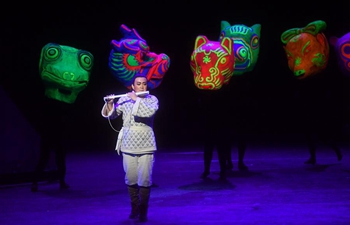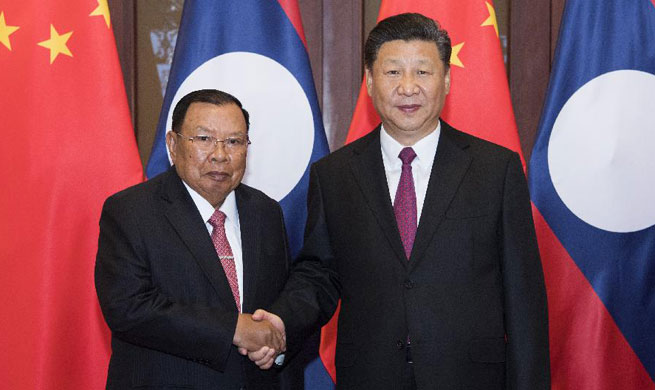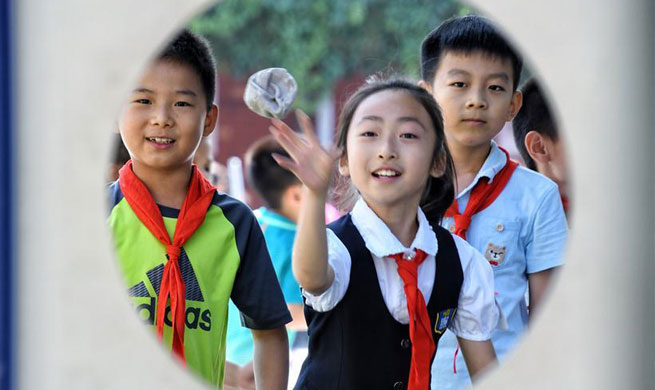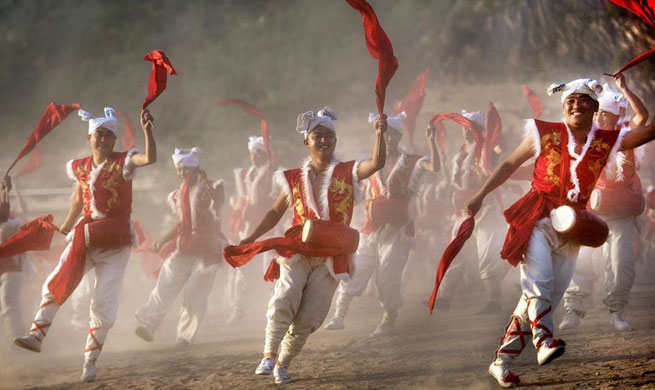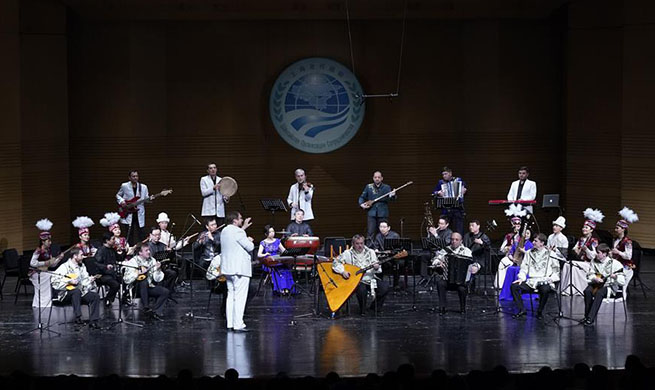NANNING, May 31 (Xinhua) -- It is 3 a.m. and Ngo Linh Chi, from Ho Chi Minh City, is still up watching television.
The Chinese drama Ngo is watching, "Lost Love in Times," tells the story of a witch, Feng Qingchen, and Yuan Ling, a prince from the Western Wei dynasty.
Featuring box office stars Cecilia Liu and William Chan, the 56-episode series is acclaimed among young audiences for its cinematic set design and fantastic fight scenes.
"I watch Chinese TV shows when I have some spare time," said the 26-year-old Ngo. "I will stay up until 3 or 4 a.m. if I don't have class the next day."
LOCAL VOICES, UNIVERSAL APPEAL
In a studio, Nguyen Thi Thanh Huyen is dubbing a Chinese animated program called "Little Ji Gong." Nguyen Thi, 43, has been working as a voice actor for foreign films for 22 years. Since playing her first role in the Chinese drama "Qianlong" in 2006, she has done voice work for more than 1,000 Chinese films and TV dramas.
In May, Nguyen Thi came to south China's Guangxi Zhuang Autonomous Region, as she has for the past four years. This year, she had a friend, Vietnamese actor Nguyen Trong Phan, with her.
"I have been watching Chinese TV series and films since I was young, and dubbing them for 15 years," said Nguyen, who is from Hanoi.
Chinese movies first became popular in Vietnam in the 1960s and 1970s. And in the 1990s, dramas such as "Journey to the West" and "My Fair Princess" were engraved in the memories of many Vietnamese.
"Watching Chinese dramas while chatting with family after dinner was the daily routine for our generation," recalled Nguyen, 67.
"I have watched 'Journey to the West' at least six times. It is still broadcast in Vietnam every summer holiday," Nguyen Thi said.
Back then, the dubbing for all characters in a Chinese film or show was done by one person. It was not until the 1990s that Chinese TV production companies began making Vietnamese-language versions.
Nguyen played Feng Jingyao, a character in "Shanghai Bund," a 2006 Chinese TV program. He said the theme song of the drama was so popular in Vietnam that many couples used it for their wedding ceremonies.
Now, thanks to the Internet, many Chinese TV series, such as "The Journey of Flower" and "Once Upon a Time" are made available in Vietnamese shortly after they are released in Chinese.
"Once Upon a Time" was streamed more than 30 million times on a video streaming platform in Vietnam, while "The Journey of Flower" has been adapted as a local series in the Southeast Asian country.
WINDOW INTO CULTURE
TV has become a cultural ambassador for China in the country. In the past four years, the provincial TV station of Guangxi, which borders Vietnam, has translated and dubbed more than 130 episodes of Chinese TV series, 196 documentary program episodes and 104 episodes of animated Chinese shows into Vietnamese.
"TV drama is a window into Chinese culture. Shanghai will definitely be my first destination if I have a chance to travel in China in the future," Nguyen said.
"China and Vietnam share similar cultures. Many of the social issues highlighted in Chinese TV series also resonate among Vietnamese," said Phung Thi Hue, researcher with the Vietnam Academy of Social Sciences. "The passion for Chinese TV dramas has also encouraged many Vietnamese to learn Mandarin."
Ngo is among them. Since falling in love with a Chinese TV program in 2011, she grew interested in the Chinese language and came to China to learn Mandarin three years ago.
"Many of my classmates decided to learn Mandarin for the same reason. Some even said they are more familiar with Chinese history than our own, because every historical figure in Chinese history can be put in a drama," said Ngo.




